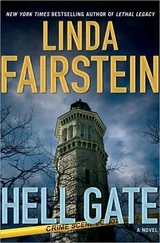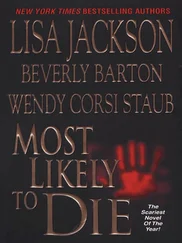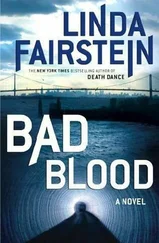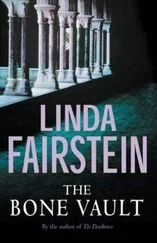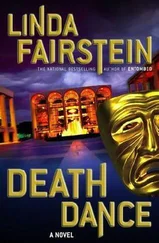Still undecided about which route I would take, I stuck a blank legal pad in my tote, dropped in the key chain, and put on my hooded red rain slicker. The museum was only four blocks away, but as I stood in the drizzle on the corner of Park Avenue waiting for the light to change a gentleman in a green mackintosh coat stepped out of a yellow taxicab and made it easy for me to shift course.
The cab discharged me at the entrance to Dogen’s building. I saw only one doorman inside the lobby. I smiled and started to approach him to explain my purpose but he barely looked up from hisDaily News comic section, so I continued on back to the right and waited for the elevator to descend and bring me up to the twelfth floor.
The nervous feeling I had experienced when I first came to the apartment with Mercer fluttered back as I knew it would. This time, it was just the spookiness of being alone with the keepsakes and belongings of the dead woman, which didn’t seem to hold much meaning or value for any of her heirs or acquaintances. How odd for the accumulation of such an interesting life to pass with so little notice or concern.
The double locks gave easily as I turned a key in each of them. Once again I was startled by a noise behind me, but this time it seemed to be the door resounding as it slammed shut at my back. I thought of William Dietrich and the other people who still might have had Gemma’s keys, so I twisted the lock and chained the bolt before throwing my slicker onto the back of an armchair.
Things were more or less as I had left them on my earlier visit. I knew that detectives had been in and out of here on a number of occasions since then on orders from the lieutenant, but whether the superintendent or rental agents had scavenged any of Gemma’s belongings I doubt I’d be aware. I spent a few minutes walking from room to room looking for differences that I might notice but finding few.
The book on spinal cord injuries was no longer on the bedside table and the closet door in that room had been left open, revealing its empty innards. I put my finger on the bottom edge of a furled-up yellow Post-it someone had stuck onto the wooden trim around the closet with a handwritten arrow pointing beneath to the words, “Deliver to Hospital Thrift Shop, Third Avenue.”
Back in the living room, I looked at the photographs with renewed interest. Now I could pick out the faces of Geoffrey Dogen, Gig Babson, several colleagues from Minuit, and London backdrops of Gemma’s favorite setting. Books and CDs were still in place, but someone had made off with the disc player and the little television set I had seen there last time. I took out my notepad and wrote a reminder to find out whether the removals were authorized or not-a typical problem at the scene of a homicide when there was no family member to keep up a presence.
There was an old clock radio on the back of the desk and I turned it on to a classical music station to fill the room with something other than the stillness that hung in the air. People in the adjacent apartment must have been more hard of hearing than my late grandmother as the noise from their television set almost boomed through the wall at me with the shrill voices of Home Shopping Network announcers. Today was obviously Capodimonte day and prices were being slashed by the minute. The neighbors couldn’t have heard me turn Gemma’s little radio knob up a notch.
I sat down again in the seat I had worked in from the day Mercer and I tried to catalogue some of the property. I could remember remarking about the lack of logic of some of the files, but there were far too many cabinets to put my finger on the ones that had stood out to me at the time.
At random, I slid open drawers and started to rifle through the subject tabs, looking for names that were now more familiar from meetings with the hospital staff and the expanded scope of our investigation. I was interested in information Dogen might have had about the men we had since interviewed and especially wanted to please Lieutenant Peterson by coming up with something that Gemma might have known about Jean DuPuy.
Inches and inches gave me nothing but medical research and clippings from journals about brain injury and surgical techniques. I checked my original notes and matched the third drawer from the left with a list that earmarked her files on “Professional Ethics.” Grabbing a handful of them, I swiveled around to place them on the desk and began to skim through them.
Some of them went back years, almost to her first days at Minuit, and none of the names they referenced had anything to do with the current staff or student body. With a red marker, Dogen had annotated the official school documents, commenting in the margins on the suitability of a candidate or her opinion of his worthiness to enter the program.
I pushed the pile to the side of the desk and reached back for a more recent assortment on the same topic. Fanning them out across the top of the blotter, I started from the rear of the pile. Midway through, the titles changed and I realized I had passed from the ethics folders into her personal records.
The tabs I was reading were labeled in Gemma’s hand with the names of sports teams. Clipped together in one lump were the Saints, the Braves, and the Redskins. I lifted the metal clasp and opened the three packets as Gemma’s filing system became obvious to me. This was her stash on John DuPre, the team name representing the city in which an academic institution or professional connection was located-Tulane was in New Orleans, his practice and lawsuit were in Atlanta, and Georgetown, where he claimed to have received his undergraduate degree, was in D.C. Somehow, she had figured the information she collected would be less obvious or desirable to an interloper if it looked like it related to a sporting event.
I thought of the briefing session at which we’d been told that one of the cops from the 17th had found file folders in a trash barrel in the hospital parking lot that bore similar labels. Perhaps this was a duplicate set that Dogen kept at home, where she had a greater assurance of privacy.
The find excited me. I dialed Chapman’s number but he still wasn’t there. I left him a message and told him to call me at Gemma’s apartment if he got in within the next hour, reading the number off the printed slot on the base of her phone. I beeped Mercer, then returned to ferreting through the drawers for more things like DuPre’s records while I waited for him to call me back.
“Who’s this?” Mercer asked when I picked up the receiver.
“It’s Alex.”
“Where are you? I didn’t recognize the number.”
“Gemma’s apartment. Peterson is going to smother us with kisses when we get through with what I’ve got here.”
“You first, Coop. That’s not exactly the reward I’ve been looking for.”
I started to explain what I had found and that I was continuing to search for more pieces. “What time are you coming back to the city?”
“You tell me.”
“Why don’t I take a few armloads of these with me, stop at Grace’s Marketplace and pick up something that you guys can feed me for dinner, and we’ll start the week off with gold stars.”
“What time is it now? Two-thirty. Plan on me gettin‘ there about seven.”
“Fine. I’m still trying to come up with the one we saw when we were here together. She had labeled it ‘Met Games.’ Remember, I remarked how out of place it was that Laura would have refiled it in better order? Only now I can’t come up with what it was stuck in between. It’s got to have something to do with her whistle-blowing, too, since she never went to a ball game.”
“It was close to something like ‘degenerates’-that’s why it stuck out in my mind.”
“That’s Sex Crimes for you, Mercer. We’ve got degenerates, medicine has ‘regenerative tissue.’ I knew you’d remember.”
Читать дальше

